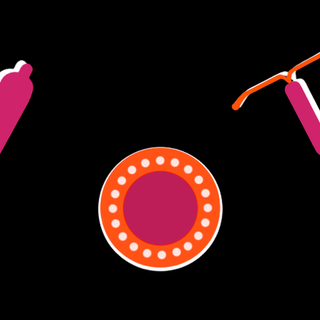The health effects of extreme dieting may include short-term weight loss — but long-term damage to health, according to a new study released by the American Physiological Society.
More specifically, researchers found crash diets work — that is, extreme diets to lose weight fast do decrease body weight rapidly and dramatically — but in the long term, they may contribute to excess belly fat and blood pressure problems.
Though the researchers did not study one diet specifically, Atkins, Dukan, Baby Food Diet, and the French Woman Diet are all examples of popular extreme diets that involve drastically reducing calorie intake to between 800-1,200 calories per day instead of the 2,000 calories that women require daily. (Crash diets are most popular with women, researchers say.)
For the study, researchers examined female rats and reduced their calorie intake by 60% to mimic the caloric impact of a crash diet. They observed that within three days, the new diet had reduced the rats’ body weight, but it had also paused their menstrual cycles. Additionally, the diet led to a decrease in a number of metabolic problems related to blood volume, blood pressure, heart rate and kidney function; though returning to typical eating patterns restored normal function quickly.
But three months after the diet had ended, they found that the animals had a higher accumulation of abdominal fat compared to animals that did not follow the diet. Excess abdominal fat has been associated with cardiovascular diseases, type II diabetes, and high blood pressure.
“Even more troubling was the finding that angiotensin II, a hormone in the body, was more potent at increasing blood pressure in the rats that were on the reduced-calorie diet,” said Aline de Souza, PhD, first author of the study.
There is no dearth of information on the internet on the negative effects of crash dieting: it can slow down your metabolism and increase heart palpitations and cardiac stress. And, in the long term, and if done repeatedly, extreme calorie-cutting does eventually lead to heart muscle loss and increases the risk of heart attacks.
Now there are two more negative effects to add: high blood pressure and excess belly fat. Which means while crash diets do work, they might not be worth it.




